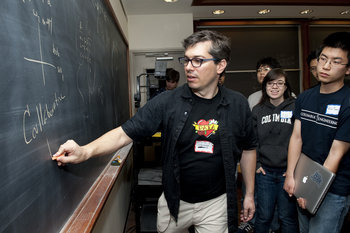
1. Ambiguity
Many individuals and organizations have trouble dealing with ambiguity such that they find it difficult to act in an environment of uncertainty. For example, a product development group that finds it difficult to design a new product before they know what a large competitor is planning.2. Consensus
The process of consensus building can consume a lot of resources and time without adding much value. For example, a creative director who needs to get five different business units to agree to a website design may consume months on this process with compromises only making the site less consistent and usable.3. Resistance to Change
Situations where members of a team would like to derail an initiative such that their contributions are not helpful but are designed to complicate and delay. For example, an administrator who suggests that you need a preliminary committee to make recommendations for the establishment of a planning committee.4. Abstraction
An individual or team that is stuck in abstract ideas that are too far detached from the realities at hand. For example, a product development team who knows a feature will be popular with customers but spends months trying to decide if it will add to the "holistic customer experience."5. Creating Problems
Considering highly theoretical problems that don't yet exist. For example, an urban planning committee that worries that improving a park might lead to "gentrification" because a nice park might raise property values.6. Complexity
Considering too many variables in a decision. For example, an environmentalist who considers extremely remote and unlikely impacts of a clean energy project that has large benefits to ecosystems as compared to the practical alternatives.7. Big Thinking
Inventing big solutions to small problems. For example, an IT team that feel they need to buy a multi-million dollar product and integrate it with 50 systems to accomplish a simple task such as managing sales contacts.8. Fear of Failure
Avoiding decisions out of a desire to avoid failure. It is often better to try, fail a little and improve than to spend too much time looking for a "can't fail" strategy.Analysis Paralysis vs Last Responsible Moment
Last responsible moment is a strategy that suggests decisions need not be made in advance. By leaving decisions and work to the last possible moment, you may be more motivated to resolve things quickly. Additionally, things change and a decision that is made as late as possible benefits from more information.Analysis Paralysis vs Fail Often
Fail often is the process of taking small brave steps that are designed to fail quickly and cheaply if at all. Designing strategies in this way allows you to make decisions quickly without tragic outcomes. For example, a student who is spending too much time and effort trying to decide their major might take a few courses in different areas to test the waters.| Overview: Analysis Paralysis | ||
Type | ||
Definition | An overly analytical decision process that results in wasted time, inaction and/or poor quality decisions. | |
Related Concepts | ||






























